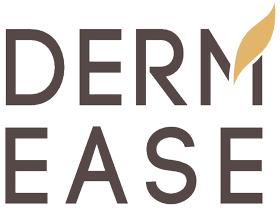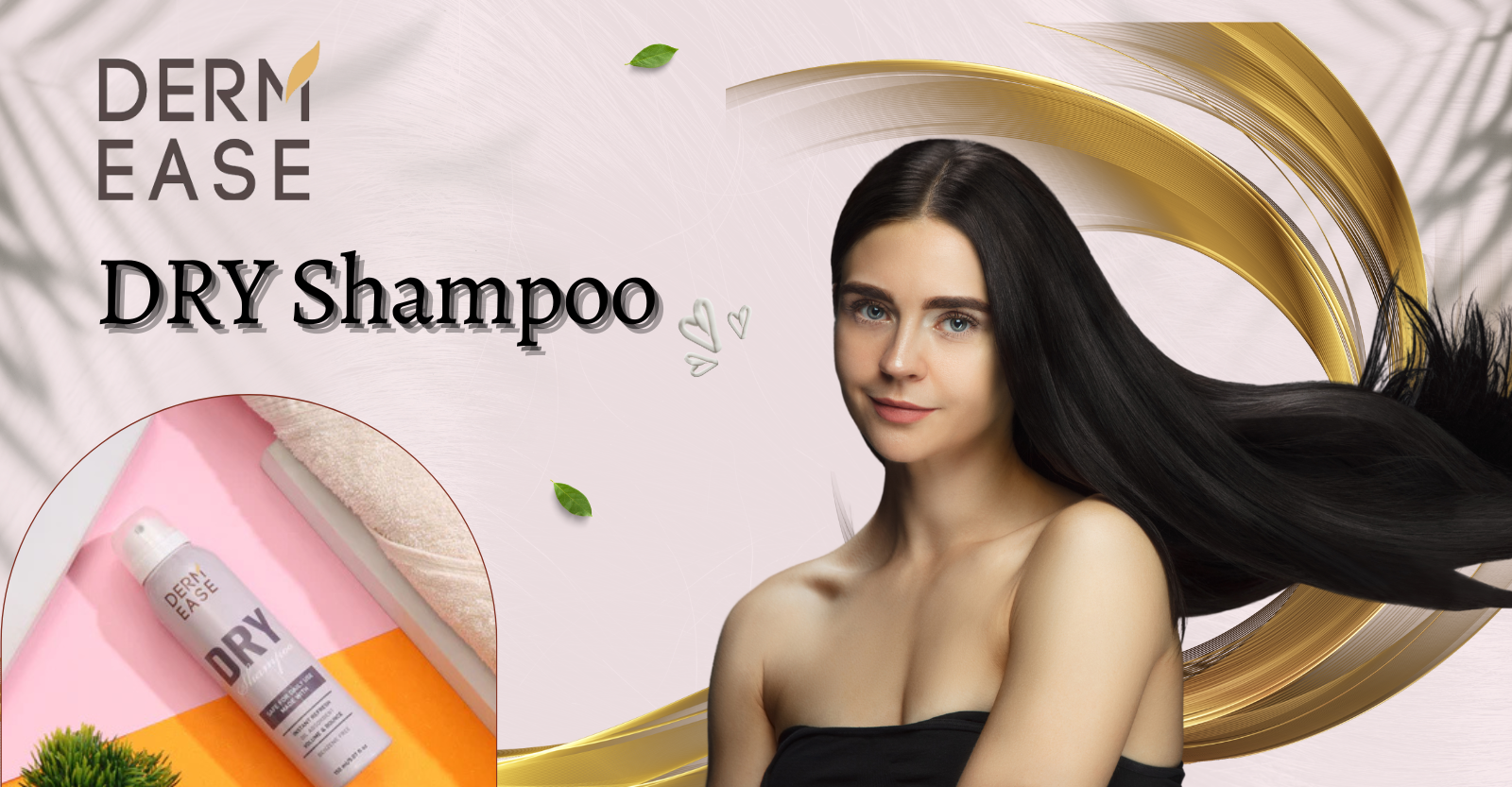Overview
Dry Shampoo has revolutionized modern hair care; it can refresh your hair in seconds with no water required. The use of dry shampoo is done through the application of a powder or spray, which absorbs excess oil, dirt, and sweat, thus cleansing the hair on the go. Since this product became famous, it mainly owes its popularity to a lot of benefits, especially in people who are very busy in their lives.
Dry Shampoo saves time, saves water, and is easy to use; thus, it's a must for most. From fighting dry scalp and dandruff to having an instant remedy, dry shampoo works as the most versatile tool for everyone. And for people looking for something better, there are organic dry shampoo and natural dry shampoo options. Moreover, the curly hair dry shampoo is specially tailored to answer special needs. Lastly, residueless dry shampoo ensures that it would leave no mark behind; perfect for every kind of hair.
Types of Dry Shampoos Available
Dry Shampoo comes in two different forms: powder and spray. Both have different advantages.
Selecting the appropriate formula depends on the hair type. Here is the breakdown:
-
Powder Dry Shampoo:
- This formula is best used for thicker and textured hair; it is best applied in smaller, targeted strokes. It effectively absorbs oil around the roots and brings volume to people with dry scalps and dandruff. It can also be more pinpointed and may not leave residue so well, hence ideal for a non-residue dry shampoo.
-
Spray Dry Shampoo:
- Conveniently used, spray dry shampoos are better suited for quick, uniform coverage. It makes it simpler to apply direct to the scalp, giving it the pride of place in temporary hair cleaning solutions for those who need a fix on-the-go. Curly hair dry shampoo also offers the option of spray formulas.
- Conveniently used, spray dry shampoos are better suited for quick, uniform coverage. It makes it simpler to apply direct to the scalp, giving it the pride of place in temporary hair cleaning solutions for those who need a fix on-the-go. Curly hair dry shampoo also offers the option of spray formulas.
Key Benefits of Using Dry Shampoo:
- Saves Time Between Washes:
- Dry shampoo saves time between washes, and it can refresh your hair quickly without the need for a full wash. It is a great time-saving solution for busy people, and it's perfect for using dry shampoo to cleanse hair without water.
- Adds Volume and Texture:
- Dry shampoo gives instant lift, especially for fine hair. It is great in adding volume and texture, especially when used on dry shampoo for curly hair, which enhances natural curls.
- Extends the Life of Hair Treatments:
- Dry shampoo helps preserve color and style by reducing the frequency of traditional washing, thus extending the lifespan of hair treatments and dry clean shampoo applications.
- Reduces Water Consumption:
- Eliminates the washing cycle of normal shampoo and reduces water usage to support the environment.
- For Travel and Any Other Busy Schedule:
- Organic dry shampoo is portable, making it an easy product to carry around. It allows quick and easy cleansing of your hair when away from home without causing any buildup on your scalp, ensuring that your hair still looks clean and clean even on rushed days.
- Organic dry shampoo is portable, making it an easy product to carry around. It allows quick and easy cleansing of your hair when away from home without causing any buildup on your scalp, ensuring that your hair still looks clean and clean even on rushed days.
How to Use Dry Shampoo?
- Shake the bottle or can:
- For dry shampoo, always shake before use to dispense the shampoo evenly.
- Part your hair:
- Divide your hair into sections, especially in the areas of the roots as oil tends to collect there.
- Apply the Product:
- Place about 6-8 inches distance from the can or powder and spray or sprinkle onto the scalp roots. With dry shampoo on curly hair, less is so much more for it not to frizz.
- Massage In:
- Massage the product into your scalp using your fingers to distribute it evenly and to absorb excess oil. This also helps with hair cleansing.
- Brush Through:
- Apply the product through brushing, to avoid visible build-up. Be sure to use a residue-free dry shampoo for a clean finish.
- Apply the product through brushing, to avoid visible build-up. Be sure to use a residue-free dry shampoo for a clean finish.
Tips for Avoiding Product Buildup:
- Do not overapply:
- Too much product can produce residue. Apply lightly and only where needed.
- Use Less on Dry Scalp and Dandruff Areas:
- For a dry scalp and dandruff, use a mild formula such as organic dry shampoo and avoid overuse.
- Brush After Application:
- Always brush after application to get rid of extra product and achieve an even application.
- Always brush after application to get rid of extra product and achieve an even application.
Mistakes to Avoid:
- Overusing Dry Shampoo.
- Using dry shampoo too many times can lead to product buildup, so it should only be applied when it's really needed and between washes.
- Incorrect Application:
- Do not spray directly on your scalp without combing your hair, as this will cause uneven application and dry clean shampoo will not work properly.
- Skipping Massage:
- The formula may leave a visible trace in case it's a thicker product. Be sure to massage the product well so it's evenly applied.
- The formula may leave a visible trace in case it's a thicker product. Be sure to massage the product well so it's evenly applied.
Common Myths and Misconceptions About Dry Shampoo:
- Dry Shampoo Can Replace Regular Washing:
- Dry shampoo is good for refreshing your hair between washes, but it can never replace regular washing. It helps in cleansing the hair and absorbs excess oil, but it does not remove dirt or sweat as water and shampoo do. Therefore, regular washes are still needed for optimal hair health.
- It's Bad for Your Scalp:
- Others claim that dry shampoo can hurt your scalp. Dry shampoos, however, when used correctly, tend to be safe for most hair. If overused and not cleaned properly, it builds up, which might trigger problems with a dry scalp and dandruff. Avoid this by opting for all-natural dry shampoos or organic dry shampoo formulas that are non-irritant on your scalp.
- Only for oily hair types:
- Dry shampoo might be used extensively for absorbing the oil, but it is a great product for everyone. Dry shampoo can be advantageous for people suffering from dry scalp and dandruff, due to the perfect dry shampoo for curly hair or natural dry shampoo that is not going to strip moisture away. It's also great to add volume and texture, for fine or flat hair.
- Dry shampoo might be used extensively for absorbing the oil, but it is a great product for everyone. Dry shampoo can be advantageous for people suffering from dry scalp and dandruff, due to the perfect dry shampoo for curly hair or natural dry shampoo that is not going to strip moisture away. It's also great to add volume and texture, for fine or flat hair.
Conclusion
Dry shampoo is versatile and convenient as a modern solution for hair care, offering much to those in busy lifestyles. It cleans the hair effectively with no water use, refreshing between washes with time saved and water conserved. Whether a dry scalp or dandruff, volume desired, or in need of quick fix on the go, dry shampoo is the answer.
Specifically, there are different options, like dry shampoo for curly hair or natural dry shampoo for different types of hair. Organic dry shampoo is a perfect choice for gentle and eco-friendly dry shampoo. Besides, dry shampoo without residue allows a clean, fresh look with no hassle from the buildup.
Adding dry shampoo into your routine would give you extended time between treatments for hair and could help with managing oil production.
FAQ's
-
What is dry shampoo and how does it work?
Dry shampoo is any product, sold in powder and spray form. It's like a refresher for your hair, which means it absorbs your excess oil, dirt, or sweat without involving water. People who are mostly busy or use quick fixes as well as anyone who wants longer time between scheduled washes require dry shampoo.
-
What are the different types of dry shampoos?
There are two primary types of dry shampoos: powder and spray.
- Powder dry shampoo works best on thicker, textured hair and is perfect for pinpoint application.
- Spray dry shampoo is perfect for people who want a quick, even distribution for a fast, uniform clean and ideal for those with curly hair or on the go.
-
How do I choose the right dry shampoo for my hair type?
-
Powder dry shampoo:
- Ideal for thicker, textured hair or for someone who prefers a non-residue product.
-
Spray dry shampoo:
- Suitable for most hair types, especially fine or straight hair, as it applies easily and evenly.
-
Curly hair dry shampoo:
- Specifically designed to meet the unique requirements of curly hair without causing frizz.
-
Powder dry shampoo:
-
Can I substitute dry shampoo for regular shampoo?
Nope. Dry shampoo can't substitute for regular washing. It merely absorbs the oil and freshens the hair between shampoos, not taking out dirt and sweat as water and shampoo do. You still have to shampoo regularly for your healthy scalp and healthy hair.
-
How to avoid product buildup with dry shampoo?
- Prevention of buildups Use dry shampoo lightly and only on areas that call for it.
- Avoid overusing it; limit usage to situations where a quick fix is necessary.
- Always massage the product into your scalp and brush through your hair to distribute it evenly.
-
Is dry shampoo safe on my scalp?
Properly applied, dry shampoo is generally safe for most people; however, overuse or improper application may lead to buildup, which can irritate the scalp. To prevent such reactions, one can choose natural or organic dry shampoos and massage the product properly to ensure even application.
-
Dry shampoo is applied to all types of hair?
Yes, it is used with all types of hair. Dry shampoo is also used by people having oily hair. It even helps dry scalp and dandruff since it does not irritate the scalp skin while it maintains the scalp's health.
-
How to use dry shampoo?
- Before you start, you have to shake the bottle or can.
- Separate your hair, then apply it to your hair from 6-8 inches distance from the roots.
- Rub it into the scalp to get a uniform coverage
- Brush the hair to eliminate any excess to prevent buildup.
-
Dry shampoo is for curly hair?
Yes. There are even specific dry shampoos for curls which are enhanced natural curls minus the frizz, refreshing your curls by creating more volume but adding less weight for oil-reduced curls.
-
How many times a week can I use dry shampoo?
Dry shampoo is best applied when it is absolutely needed and usually just between the washes. At the right time, it will be used to refresh hair but decrease oil buildups between washes.




